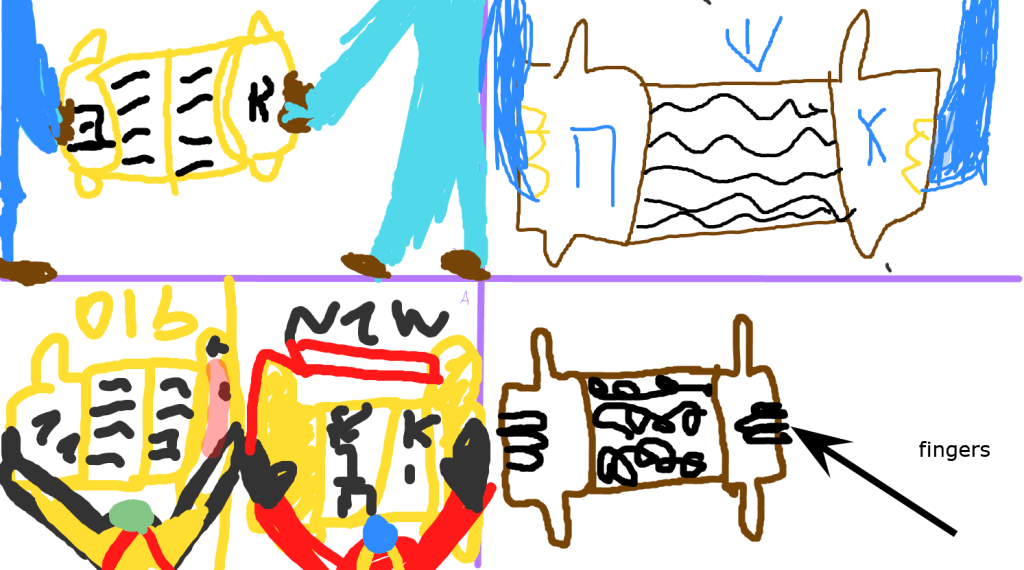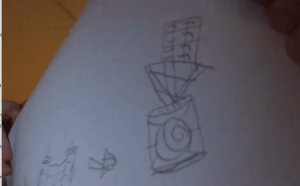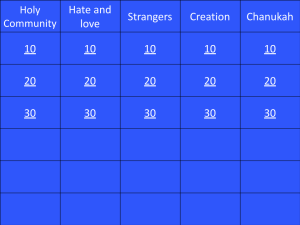Makom @ Home wrapped up our first unit with a text from Pirkei Avot about the transmission of Torah through the generations. We talked about things that get passed down in our families:
- Speaking Russian
- Shabbat
- Jewish religion!
- On my dad’s side, my grandmother passed down jewelry. My dad’s grandma gave it to my mom.
Some of us illustrated how Torah has changed over time:

Descriptions from the artists:
Bottom left: The old Torah has black spots, the new one has Hebrew and English.
Top right: There is a person reading Torah with Hebrew letters
One Makom @ Home artist drew the Torah of the future:

The text went on to talk about three things the world depends on to stand: Torah, connecting to something bigger, and acts of loving kindness. We thought about other things that come in threes, the strongest shape:
- There are three paragraphs in the Shema.
- My family has two kinds of threes – three people and three bunnies.
- There are 3 shots in vaccination.
- I had 3 things for lunch today.
- I have 3 dreidels.
- I will go to Florida for 3 days.
- Three friends 🏃♀️👫
- Three Torah reading days: Monday, Thursday and Shabbat!
“Connecting to something bigger” is our translation of the Hebrew word Avodah. Avodah can also be translated as “prayer.” We thought about what activities besides our Makom @ Home Tefilah feel like praying or help us connect to something bigger than ourselves:
- Shabbat prayers
- Going to synagogue
- Feeling relaxed camping
We reflected on when others practice acts of loving kindness towards us and when we practice loving kindness towards others.
Do you think it changes you as a person when you practice acts of loving kindness? What changes about you?
- Yes, because it creates ripple effects. It makes other people feel happy and kind, and they spread the vibe.
- You might feel happy because you did the right thing.
- For example, if a bully was being mean to you, you should not be mean to them back because then they would keep being mean to other people because they think it is good.
We looked for more threes during tefilah. We learned that there are three main categories of tefilot: wow, thanks and please. We noticed examples of each kind and found two more threes in the text of our tefilot:
- In the Shema, there are three ways to love God: with all your heart, with all your soul and with all your power.
- In the Amidah, we say kadosh, kadosh, kadosh (holy, holy holy) three times.
For our last week of this session, we played lots of review games, with some questions written by our kiddos!

We sang all of our tefilot and shared what we’re looking forward to over winter break. I can’t wait to start our new unit together in January!
